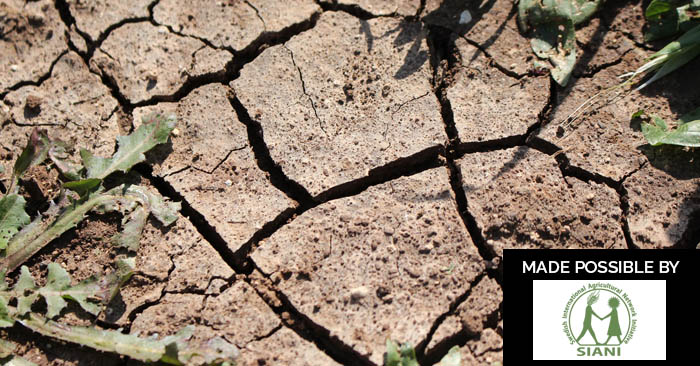
SIANI — 20/05/15 — Malmo, Sweden
SCROLL DOWN TO ACCESS VIDEOS
Healthy soils are the basis for a sustainable food production, and our civilisations. Yet the role of soils is often neglected and public awareness of soil health and management is generally low. For this reason 2015 is named the International Year of Soils, an initiative from the UN to reverse this trend and raise widespread understanding about the importance of soils.
The Save Our Soils seminar provided a platform to address the great challenges we face and highlight the exciting opportunities we have in preserving our soils – from tackling erosion and food security to exploring the benefits of carbon sequestration.
International soil experts, scientists, practitioners and politicians gathered together in Malmö, Sweden to share their expertise and insights into the issues we face today with soil degradation and soil health.
Speakers:
- David R. Montgomery, Professor of Earth and Space Sciences, University of Washington in Seattle.
- Mary Scholes, Professor at School of Animal, Plant and Environmental Sciences, South Africa.
- Rattan Lal, Professor of Soil Science, Director of the Carbon Management and Sequestration Center, Ohio State University.
- Katarina Hedlund, Professor, Centre for Environmental and Climate Research, Lund University.
- Sten Stymne, Professor, Department of Plant Breeding, Swedish University of Agricultural Sciences.
Panel Speakers:
- Henrik Brundin, Vi-skogen.
- Mätta Ivarsson, Region Skåne.
- Enar Magnusson, Findus.
- Robert Paulsson, Swedish Board of Agriculture.
- Henrik Smith, Lund University.
This briefing was made possible by SIANI:
SIANI is a member-based network that supports and promotes Swedish expertise on sustainable food security and nutrition, in line with the Swedish Government’s policy on global development. Our membership is diverse and includes representatives from governments, civil society, the private sector and academia. Our network offers an open and interactive platform for exchange on global issues around food security, poverty reduction and environmental sustainability.
VIDEO BRIEFINGS
Watch the video
Watch the video
Watch the video
DOWNLOAD SECTION
Presentation Slides:
Losing ground – The historic links between soil erosion and the fall of civilizations – David R. Montgomery.
The living soil – An introduction to the global scientific frontline of soil microbiology, and sustainable management of soil – Mary Scholes.
Saving our Soils How different agricultural practices affect soil health – Katarina Hedlund.
Breeding for life. How perennial crops keep the soil in place, increase fertility and sequester carbon in the soil – Sten Stymne.
SIANI Save Our Soils event page.
SELECTED PHOTOS






